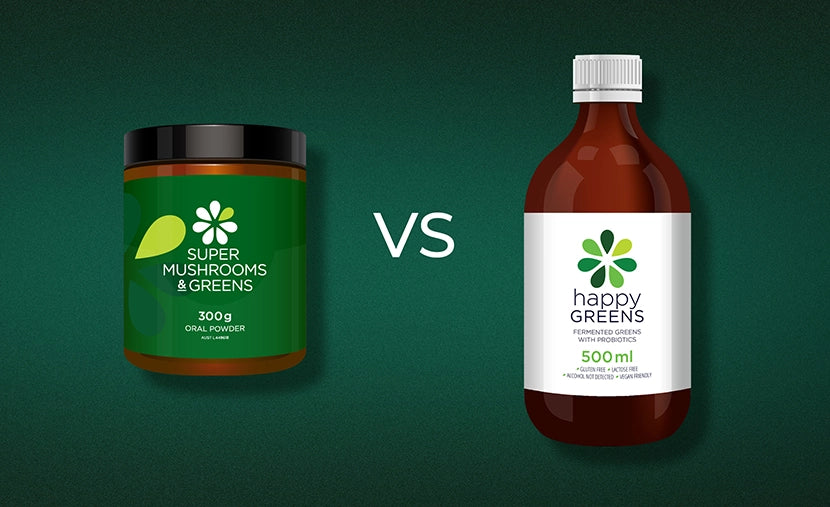Have you heard about Nitric Oxide and how important it is for your health?
Nitric oxide (NO) is a crucial molecule in the body, especially relating to overall health and preventing cardiovascular disease which is the number one cause of mortality. I like to think of NO as the vitality molecule as the levels of NO increase or decrease directly in relation to following the 4 pillars of health we discuss in the Happy Healthy YOU Book.
Discovered in the late 20th century, nitric oxide has since been recognised for its vital role in maintaining cardiovascular health, regulating blood pressure, enhancing exercise performance, supporting immune function, and facilitating neurotransmission. This article explores the functions of nitric oxide, how you can naturally increase its levels, and factors that can reduce its production.
Symptom improvement
- Blood pressure reduction
- Anxiety reduction
- Reduces the effects of stress
- Better sleep
- Calmer digestion
- Balances hormones through secondary effects of nervous system balance
- Reduced inflammation, aches and pains
The Role of Nitric Oxide in the Body
Vasodilation and Blood Flow:
One of the primary functions of nitric oxide is vasodilation, which means it helps relax and widen blood vessels. This process improves blood flow throughout the body, ensuring that oxygen and nutrients are efficiently delivered to tissues and organs. Improved blood flow also reduces blood pressure, which is crucial for heart health.
Regulation of Blood Pressure:
Nitric oxide helps regulate blood pressure by signaling the smooth muscles around blood vessels to relax, thus reducing vascular resistance. This effect helps to maintain normal blood pressure and prevents hypertension, a major risk factor for heart disease and stroke.
Enhancement of Exercise Performance:
By improving blood flow and oxygen delivery to muscles, nitric oxide plays a key role in enhancing exercise performance. Athletes and fitness enthusiasts often seek ways to boost nitric oxide levels to increase endurance, reduce fatigue, and improve recovery times.
Immune Function:
Nitric oxide plays a critical role in the immune system. It acts as an antimicrobial agent, helping the body defend against pathogens. Immune cells, such as macrophages, produce nitric oxide as part of their response to infections. NO is toxic to bacteria, viruses, and other pathogens, effectively inhibiting their replication and spread.
Beyond its antimicrobial properties, nitric oxide modulates the activity of immune cells, influencing the immune response. It helps regulate the balance between pro-inflammatory and anti-inflammatory signals, ensuring that the immune system responds appropriately without causing excessive tissue damage. This regulatory role is essential for preventing chronic inflammation, which can lead to various diseases, including autoimmune disorders.
Neurotransmission:
Nitric oxide acts as a unique neurotransmitter in the nervous system. Unlike traditional neurotransmitters which are stored in vesicles and released into synapses, nitric oxide is synthesised on demand and diffuses freely across cell membranes. This characteristic allows it to act as a signaling molecule, particularly in the brain.
In the brain, nitric oxide is involved in the regulation of synaptic plasticity, which is the ability of synapses to strengthen or weaken over time. Synaptic plasticity is fundamental to learning and memory. NO facilitates long-term potentiation (LTP), a process that strengthens synapses based on recent patterns of activity, thereby supporting memory formation.
Additionally, nitric oxide modulates the release of other neurotransmitters, such as dopamine and serotonin, which are involved in mood regulation, motivation, and reward pathways. By influencing these neurotransmitters, nitric oxide indirectly affects mood and emotional well-being, further underscoring its importance in mental health.
Nitric Oxide as an Antioxidant:
Nitric oxide also functions as an antioxidant, helping to neutralize harmful free radicals in the body. Free radicals are unstable molecules that can cause oxidative stress, leading to cellular damage and contributing to aging and chronic diseases. Nitric oxide helps to mitigate oxidative stress by interacting with free radicals, thereby reducing their harmful effects.
Moreover, nitric oxide stimulates the production of other antioxidant molecules, enhancing the body’s overall antioxidant defense system. This dual role of nitric oxide—both directly neutralizing free radicals and promoting antioxidant production—makes it a crucial player in maintaining cellular health and preventing oxidative damage.
How to Naturally Increase Nitric Oxide Levels
- Vegetables: Veggies like spinach, arugula, and beets are rich in dietary nitrates, which the body converts into nitric oxide. Consuming these foods can significantly boost NO levels.
- Citrus Fruits: Rich in vitamin C, citrus fruits help protect nitric oxide molecules from oxidative damage, thus enhancing their availability in the body.
- Amino Acids (L-Arginine and L-Citrulline): These amino acids are precursors to nitric oxide. Foods high in these amino acids, such as turkey, chicken, dairy, and legumes, can help increase nitric oxide production. Supplements containing L-arginine and L-citrulline are also popular among athletes for boosting NO levels.
- Exercise and Physical Activity: Regular aerobic exercise stimulates the production of nitric oxide. The increased blood flow and shearing stress on blood vessels during exercise promote NO synthesis, contributing to better cardiovascular health and improved exercise performance.
- Humming: Research has shown that humming can significantly increase nitric oxide levels in the nasal passages, potentially by up to 15-20 times compared to normal breathing. The act of humming causes vibrations that enhance the production of nitric oxide in the sinuses, which is then inhaled into the lungs and absorbed into the bloodstream.
- Nasal Breathing: Breathing through the nose, as opposed to the mouth, also boosts nitric oxide levels. The nasal passages produce nitric oxide, which is carried into the lungs with each breath. This not only improves oxygen uptake but also helps regulate blood pressure and enhances cardiovascular health.
Our Nitric Oxide Daily Practice is the fastest and most efficient way to increase nitric oxide levels in the body. Simply sit in a comfortable position upright, use headphones and hum along with the tune of the track. This will significantly increase your nitric oxide levels when practiced regularly.
- Mouth Taping: A technique that involves taping the mouth closed during sleep to encourage nasal breathing has gained popularity for its potential health benefits. By ensuring that breathing occurs through the nose, mouth taping can help increase nitric oxide production overnight, leading to improved sleep quality, better oxygenation, and enhanced cardiovascular health.
- Exposure to Sunlight: Sunlight exposure triggers the skin to produce nitric oxide, which can help lower blood pressure and improve cardiovascular health. This is one of the reasons why moderate sunlight exposure is beneficial.
- Healthy Gut Microbiome: A healthy gut microbiome aids in converting dietary nitrates into nitric oxide. Consuming probiotic-rich foods (like yogurt and kefir) and high-fiber foods can support a healthy gut and boost NO levels. Happy Digestion is an excellent tool to assist here.

Factors That Reduce Nitric Oxide Levels
- Poor Diet and High Saturated Fat Intake: Diets high in saturated fats can reduce nitric oxide production by impairing the function of endothelial cells that produce NO. Low Antioxidant Intake: A diet low in antioxidants can lead to oxidative stress, which degrades nitric oxide and reduces its availability.
- Smoking and Tobacco Use: Smoking introduces harmful chemicals into the body that can damage the endothelium, the inner lining of blood vessels, thereby reducing nitric oxide production.
- Sedentary Lifestyle and Lack of Physical Activity: A sedentary lifestyle reduces blood flow and the stimuli necessary for nitric oxide production. Regular exercise is crucial for maintaining healthy NO levels.
- Chronic Stress and High Cortisol Levels: Chronic stress increases cortisol levels, which can negatively impact nitric oxide production and lead to higher blood pressure. Cortisol can impair the function of endothelial cells, which are responsible for producing nitric oxide. Additionally, stress-induced inflammation can cause oxidative stress, further degrading nitric oxide and reducing its bioavailability.
- Natural Decline and Ageing: As we age, the body’s ability to produce nitric oxide naturally declines, making it even more important to maintain a healthy lifestyle that supports NO production.
Conclusion
Nitric oxide is essential for numerous bodily functions, particularly for cardiovascular health, immune function, neurotransmission, and cellular protection. While chronic stress, poor diet, and a sedentary lifestyle can reduce nitric oxide levels, there are several natural methods to boost its production.
Incorporating practices like the Nitric Oxide Practice, nasal breathing, humming, regular exercise, and a diet rich in nitrates and antioxidants can help maintain optimal nitric oxide levels, supporting overall health and well-being. Understanding and harnessing the power of nitric oxide is key to enhancing physical performance, boosting immune function, and promoting mental clarity.








Leave a comment
This site is protected by hCaptcha and the hCaptcha Privacy Policy and Terms of Service apply.